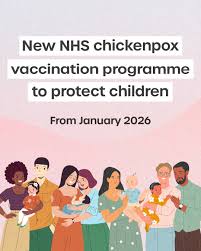Understanding Chickenpox Vaccines Available Through NHS

Introduction
Vaccination plays a pivotal role in public health by preventing the spread of infectious diseases. One disease that can be mitigated through vaccination is chickenpox, a highly contagious viral infection caused by the varicella-zoster virus. In the UK, the National Health Service (NHS) provides guidance and access to vaccines that can help protect individuals and communities from this disease. Understanding the chickenpox vaccine’s significance, its availability through the NHS, and recent updates surrounding it is essential, particularly as health organisations encourage increased vaccination rates.
Importance of Chickenpox Vaccines
Chickenpox is commonly known for its itchy rash and flu-like symptoms. While often mild in children, complications can arise, especially in adults, pregnant women, and individuals with weakened immune systems. Vaccination against chickenpox helps prevent severe illness, hospitalisations, and potential outbreaks. The NHS currently recommends the chickenpox vaccine for individuals who are considered at risk of severe disease.
Availability and Recommendations
The chickenpox vaccine is not routinely offered to all children in the UK but is available for certain groups. According to the NHS, children who are unwell, particularly those with conditions that may lead to severe complications, and adults who have never had chickenpox should consider getting vaccinated. The vaccine is typically provided through GP practices, where parents can consult with healthcare professionals regarding vaccination for their children.
In September 2023, NHS England launched a campaign aimed at raising awareness about the chickenpox vaccine, focusing on its prevention strategy. This initiative aims to support parents in making informed decisions about vaccinations and to reduce the incidence of chickenpox within communities. Statistics indicate that despite the vaccine’s efficacy, vaccination rates have stagnated, prompting the need for renewed public health messaging.
Significance of Vaccination
The significance of receiving the chickenpox vaccine extends beyond individual protection. It contributes to herd immunity, thereby shielding those who cannot be vaccinated due to medical concerns. Vaccines have proven effective in decreasing the prevalence of vaccine-preventable diseases, and increasing vaccination rates can lead to fewer outbreaks and hospitalisations.
Conclusion
In conclusion, the chickenpox vaccine offered by the NHS remains a vital public health tool in combating the spread of varicella-zoster virus infections. As health authorities continue to promote vaccination, it is crucial for families to understand availability, recommendations, and the benefits of immunisation. Moving forward, with ongoing public health campaigns and community engagement, there is hope for higher vaccination uptake, leading to a healthier future for all.









